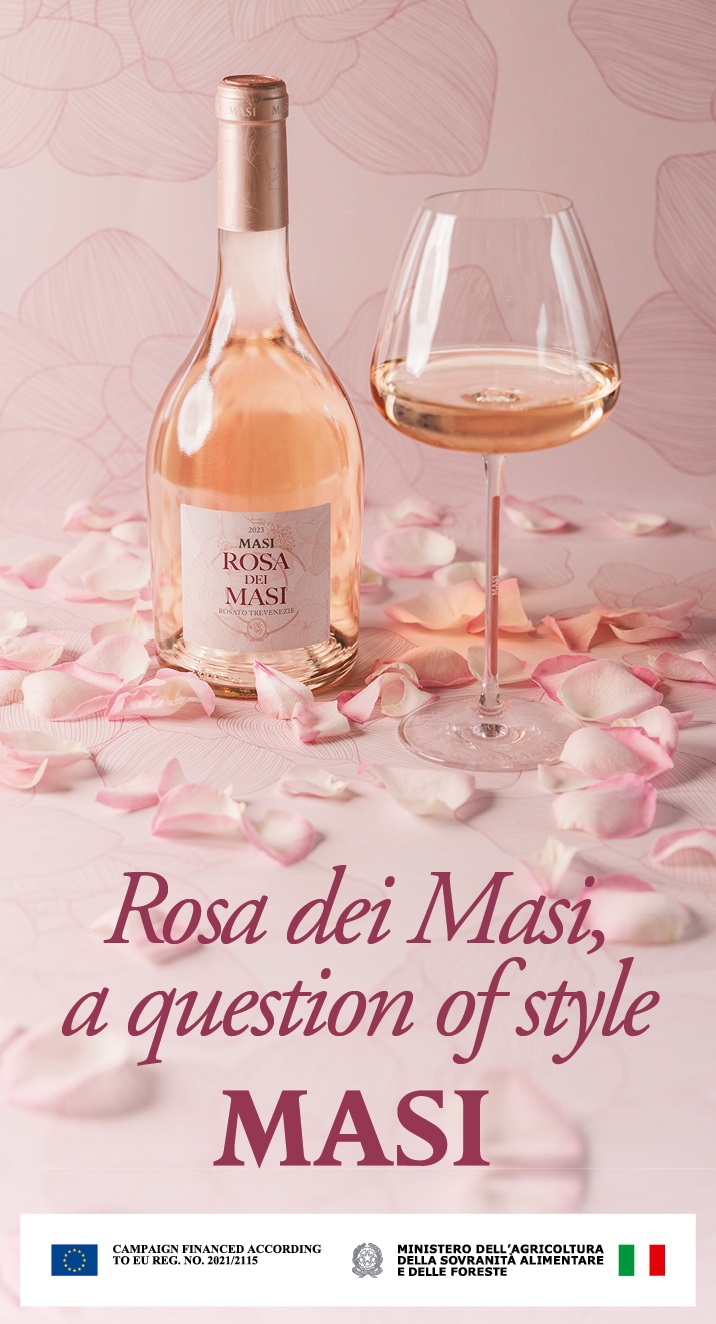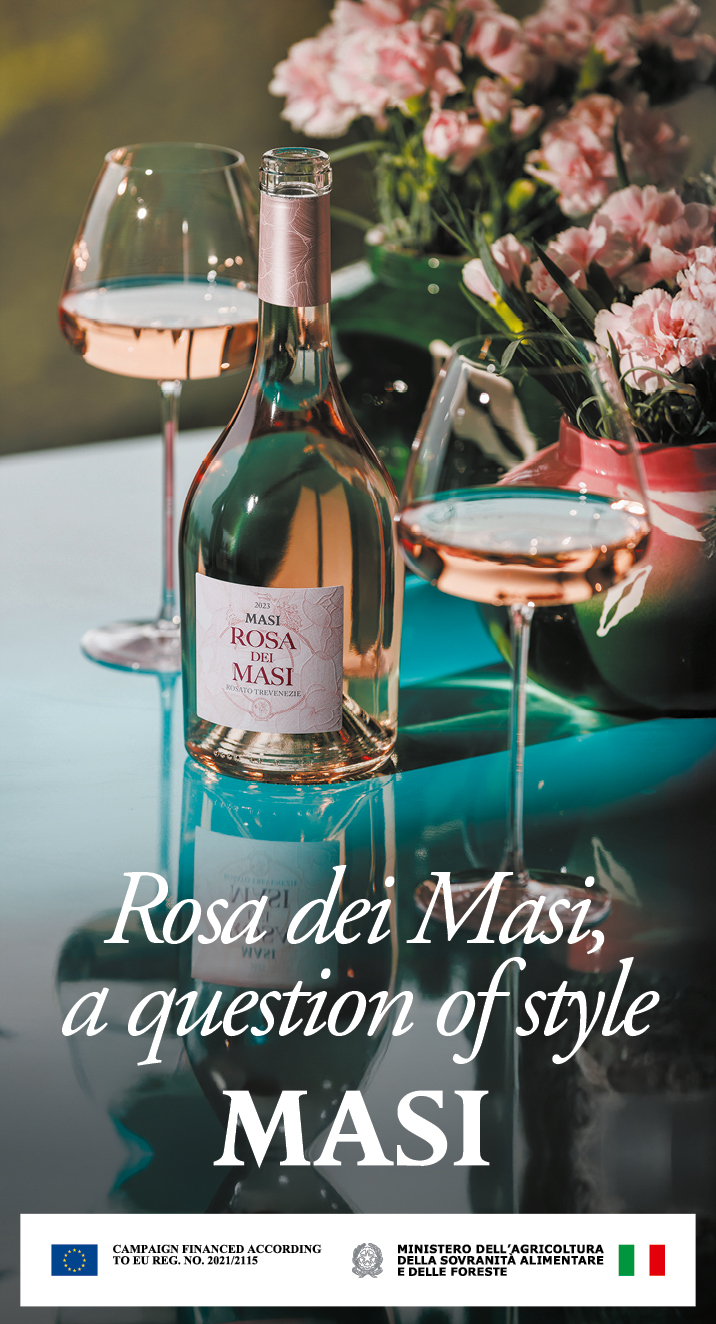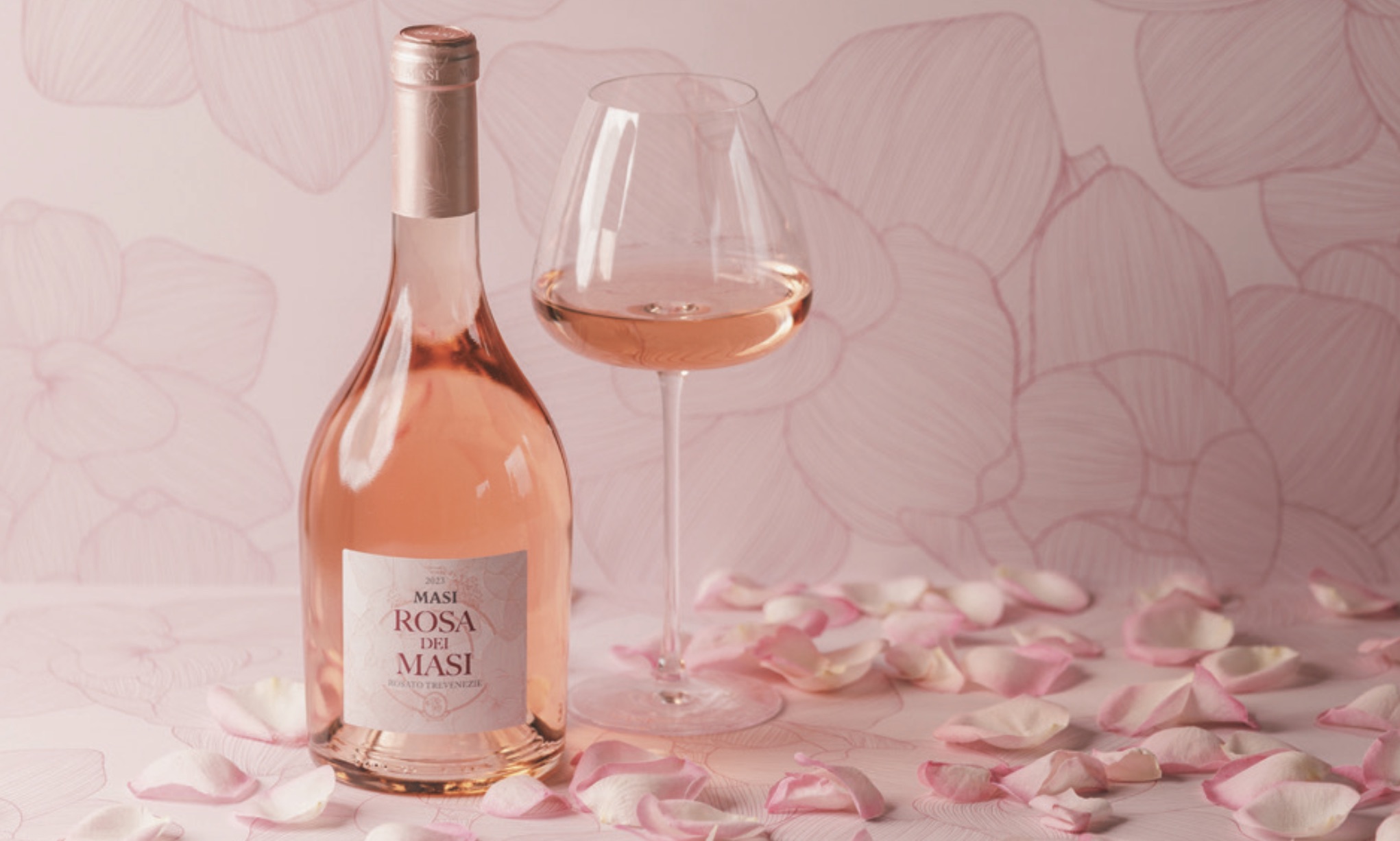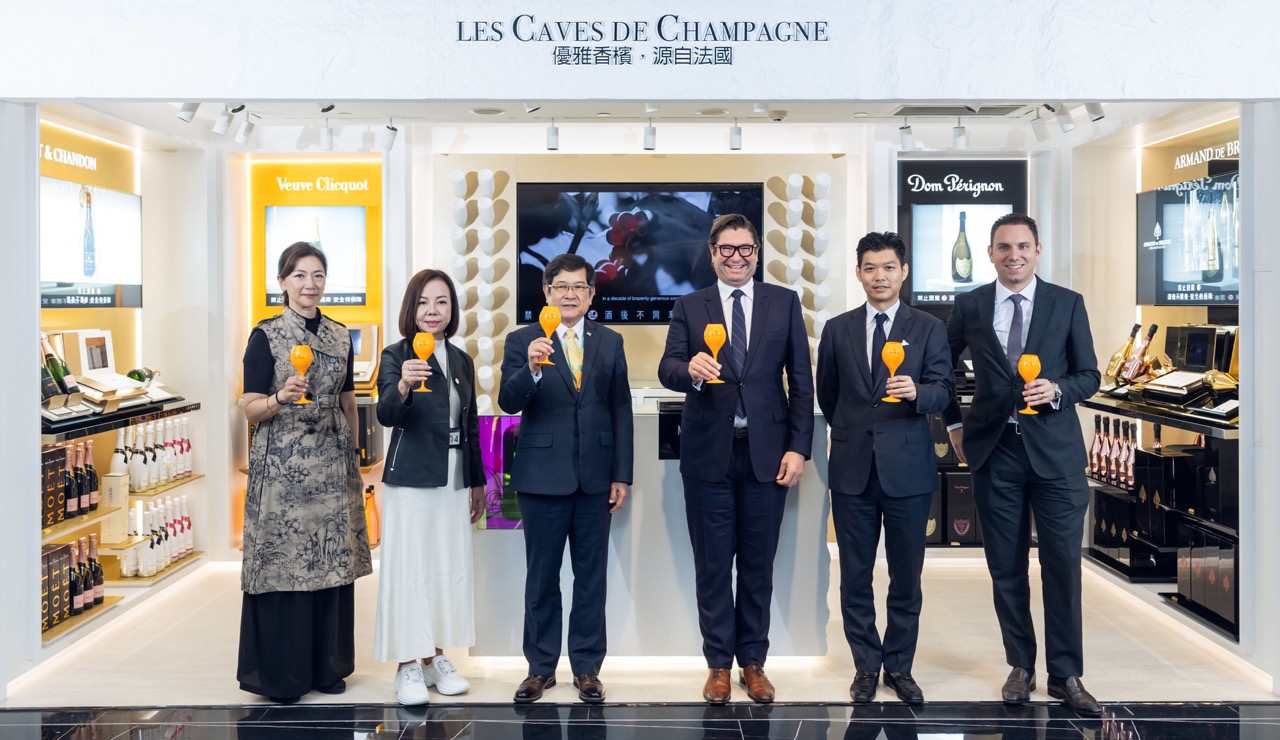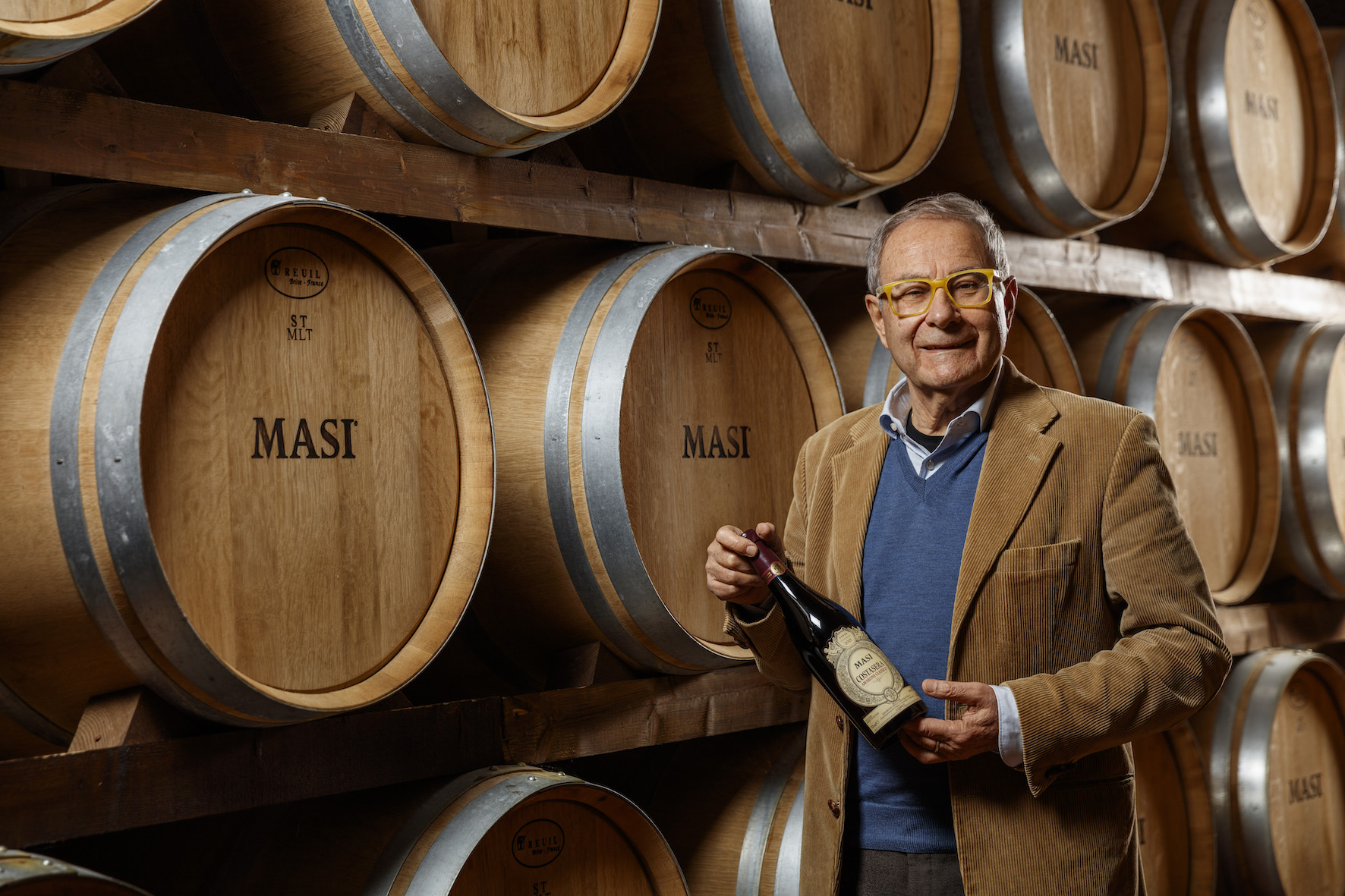
“This is the story of an inseparable bond of a surname, Boscaini, and a place name, Vaio dei Masi.” That’s how Masi Agricola President Sandro Boscaini hailed the 250th harvest at the family vineyards and the 250th anniversary of the company in 2022.
Located in the heart of Italy’s Valpolicella Classica region, Masi is one of the Venetian region’s and Italy’s most revered winemakers. It has become synonymous with the production and distribution of Amarone and other premium wines and is known for its expertise in the Appassimento method, which has been practised since the time of the Ancient Romans.
Boscaini spoke to The Moodie Davitt Report President Dermot Davitt about the significance of the recent anniversary, blending traditional and modern methods, where Masi fits into a world of changing wine consumption and tastes, and the importance of travel retail.
The trauma of the pandemic deeply affected winemaking communities around the world, from activity in the vineyards to the impact on wine merchants and the on-trade in particular in 2020 and 2021. The Verona wine region was no different, says Masi Agricola President Sandro Boscaini, but thankfully the world, and the industry, have moved on.
“So far we can be pleased,” he says. “We didn’t foresee these dramatic limitations to our business of course but we have recovered strongly. We know that people want to enjoy life again, they want to travel, they want experiences and they want a return to normality. This is fuelling our return to normal levels of business, including in duty free which will return to [pre-pandemic] levels soon.”
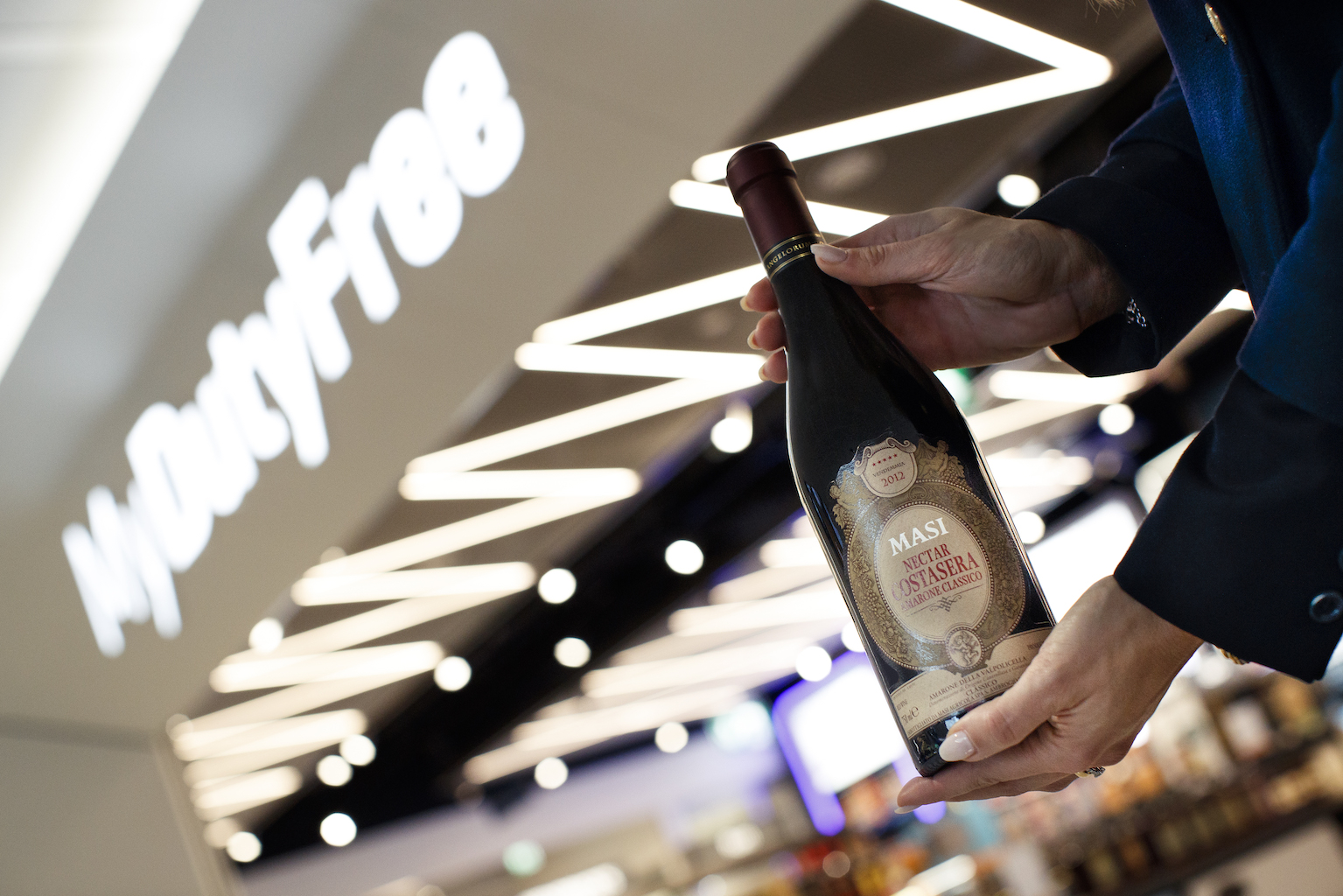
That upbeat view is borne out by the most recent figures from the company, whose shares are listed on the Borsa Italiana (Italian Stock Exchange). Alongside improved profitability, net revenues in the first half of 2022 reached €36.9 million, a leap of +26.2% year-on-year and ahead of the €29.7 million posted in H1 2019.
Travel retail sales through 2022, although still behind pre-pandemic levels, exceeded even positive expectations, says the company (see panel below).
The company – now run by the seventh generation of the Boscaini family – has come through many tough times in two-and-a-half centuries. Boscaini takes great pride in its heritage and traditions, but adds that innovation and remaining relentlessly modern at many stages over the 250 years has been central to Masi’s success.
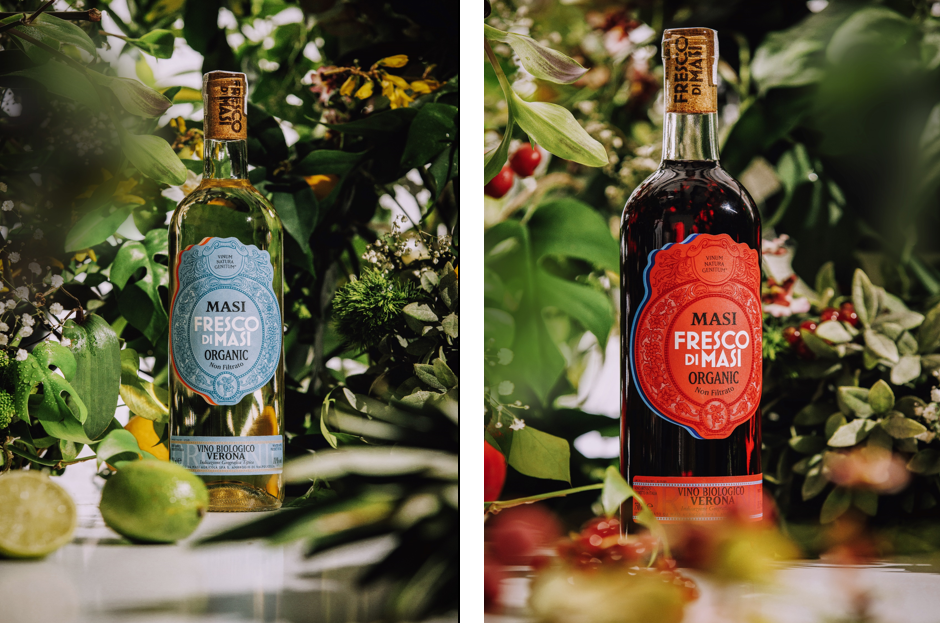
“Very few companies can trace their roots back 250 years. In this case it is through one family, the Boscaini family, and in one small area, in the heart of the Valpolicella Classica region. The story has grown. From a winemaking estate Masi became a recognised name and logo, then a commercial company listed on the Milan Stock Exchange. So we are celebrating the beautiful story of a family and a vineyard.
“My family was always considered a pioneer in traditional winemaking – using the dried grapes – with techniques that go back to [Ancient] Roman times. But we have also been a pioneer in making contemporary Amarone ever since the 1980s, with other producers following us in this direction.
“We have had to adapt our thinking too. Our market is not rural, it is not just the region between Venice and Milan, which it was for a long time. Now we are in a global market, with a presence in over 140 countries.”
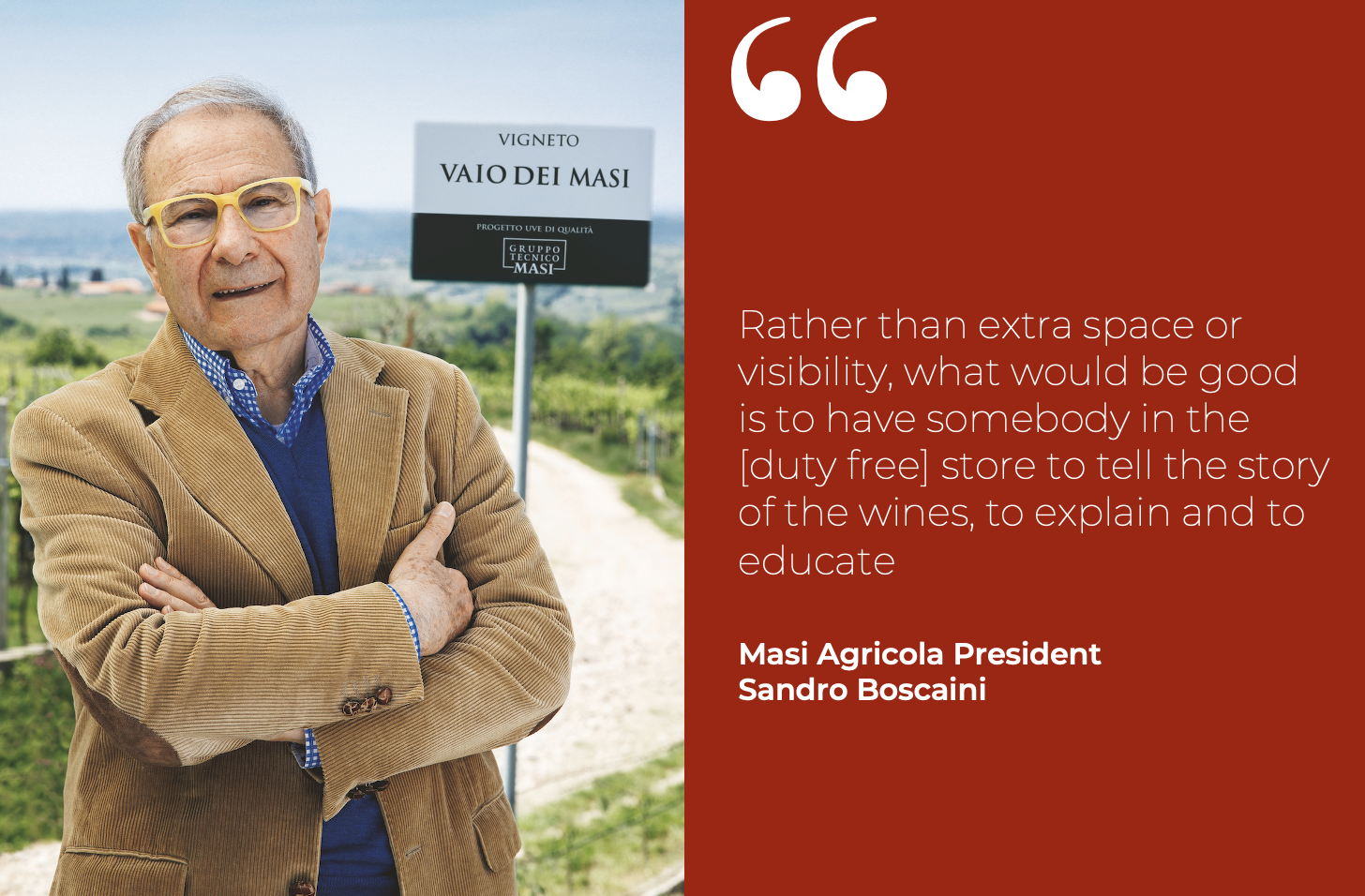
Amarone is a singular wine type due to its origin, ancient grape varieties and production method (the vinification of grapes that have been semi-dried for three to four months on bamboo racks). It also benefits from vineyards located on the western slopes facing the sunset in Valpolicella Classica. Here, where the day is longer, the vines that face Lake Garda benefit from the reflection of its light and from the mild climate.
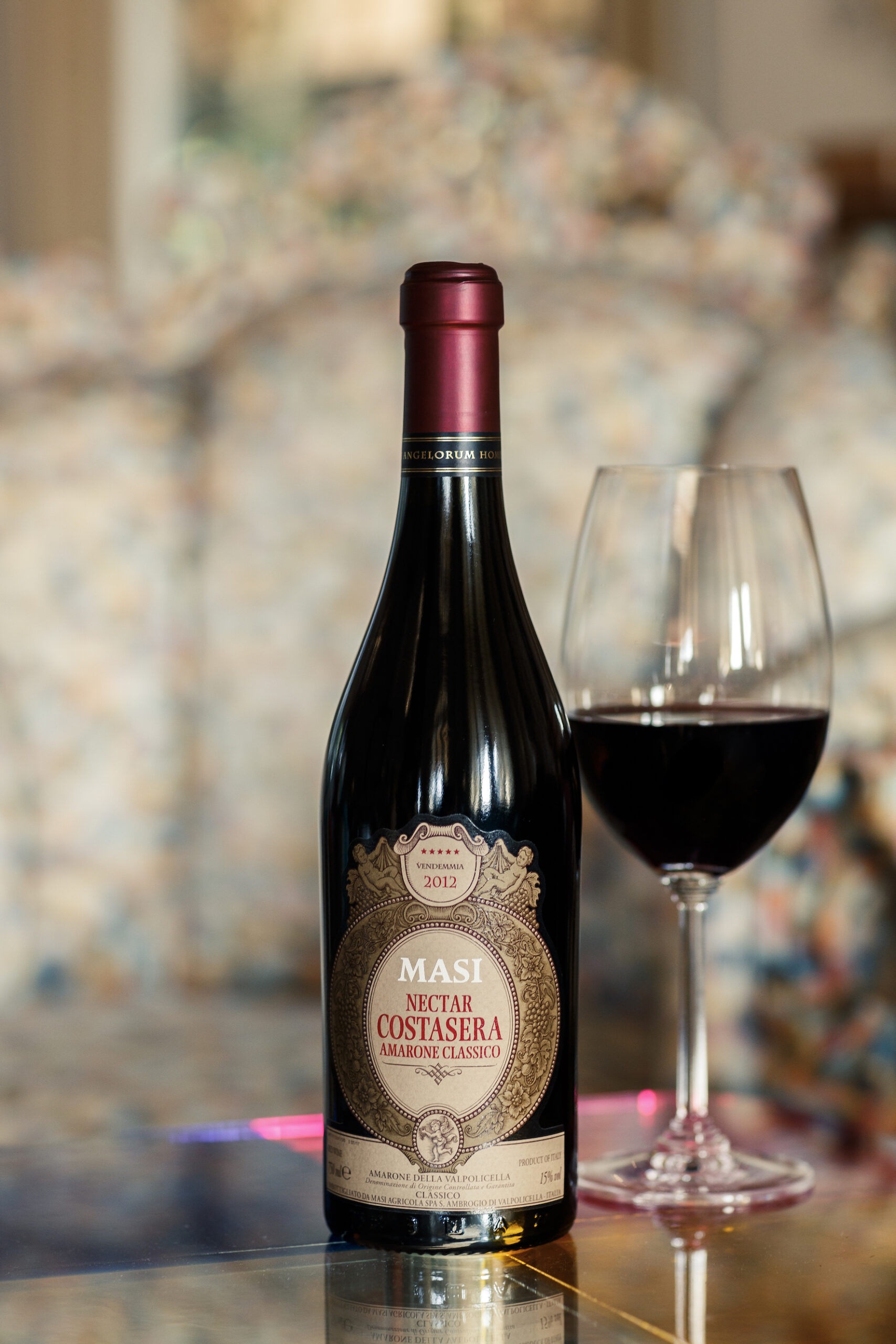
Today almost 80% of the Amarone produced in Valpolicella Classica is sold overseas, with Masi a powerful standard bearer [around 35% of its sales come from the US, with a further 34% from Europe excluding Italy].
With annual volumes of around 16 million bottles Amarone is the best-selling Italian fine wine with a DOCG denomination in the world. Taking leadership and responsibility for its continued growth is one the Boscaini family takes very seriously.
“The appeal of Amarone is the wine itself, but it’s also about our story,” says Sandro. “Amarone is from a small area, made in a unique style that gives a different sensation to other wines, an experience in fact.”
And it is this story that the company aims to communicate in travel retail, which has become a vital channel for the brand.
Boscaini says: “Masi was a pioneer in entering the duty free space with Amarone as we knew it had the reputation as somewhere you could buy a bottle that is special and important. However the shelf space given to wine at the time – and certainly to Italian wine – was very poor. Today the improvement in space devoted to wine is a fact. The selection of brands and appellations is very good.
“If you shop in the international duty free market you can buy something very special. Different brands, different appellations, something rare that you cannot find elsewhere, as a gift or for yourself, all at a good price. Duty free is very successful for us and will continue to be now that travel has returned.”
Historic principles, modern techniques Sandro Boscaini underscores the importance of weaving together ancient winemaking techniques with modern methods as Masi builds on its proud 250-year history. He says: “The production for a long time was much the same as when my father and my grandfather did it, with nature doing much of the work to create this special wine. But from the late 1970s we realised we needed also to control the process. “At each point it needs checks and controls so you obtain true Amarone, not just leave production to chance. You start with the idea that you are creating a style of wine made from dried grapes. We selected specific vineyards, cultivating grapes more adapted to the drying process and without infection or rot. “We added more control to the fermentation and various other technical aspects to ensure that we created a wine that we want and that the market appreciates today. So rather than having Amarone with traces of oxidation or traces of residual sugar, instead we have a clean, pure, round, soft wine that fits perfectly with the style of Amarone. “That’s why we talk about the ‘illusion of sweetness’ as being the first test of this wine. That is nothing to do with sugar but the silky style of wine that is also powerful. That is how we have designed it.”
|
The channel has the potential to assume even greater importance as a showcase, he adds.
“Rather than extra space or visibility, what would be good is to have somebody in the store to tell the story of the wines, to explain and to educate, especially for people who don’t speak the language. So we combine the specialist environment, the oenothèque, with the sommelier who explains the wine’s story, how it can be paired with food and so on. All of this can help buying the wine into an experience.”
Its presence in the channel is led by signature expressions such as Nectar Costasera Amarone. Boscaini describes this expression as a “special cuvée” of Amarone made for the travel retail channel, one that sits above even its other premium wines.
The ‘nectar’ relates to the dominance of the Corvina grape variety used in the wine, giving it the softness and cherry-tinged fruitiness typical of wines from the Verona region, with Rondinella added for structure and Molinara to give spiciness and acidity.
“For duty free you need something that is not easy to find on the regular market, something exclusive, and in this case it is aged in such a way that makes it the crème de le crème of the range,” says Boscaini.

The origins and techniques used in making Amarone set Masi’s wines apart – so too does the above-average alcohol strength of its most popular expressions. How does this fit with a changing world of consumer tastes and appreciation and demand for lower alcohol wines, we ask?
Boscaini says: “It’s true, the trend today is towards more easy, everyday consumption. Many people drink more white, more rosé, more sparking, and even in reds they select wines that are a little lower in alcohol.
“But when they want an experience, when they choose something more luxurious for a great dinner or a special occasion, they think more about the maximum expression of one type of wine or one appellation. In the case of Amarone if they want to taste a great example of this appellation then they need to go beyond a certain strength, beyond 15%, 15.5%, and maybe they drink one glass less but they are making a choice to drink a special wine.
“That’s where Amarone fits. It is an experience, it is a luxury product, and a bottle that you don’t necessarily open every day.”
Europe and Hainan markets buoy travel retail recovery Masi Agricola Export and Travel Retail Sales Director Pier Giuseppe Torresani reflects on how the business has recovered in 2022, singling out particular regional highlights. “2022 was a very good year for Masi in general and for our travel retail business in particular. Overall travel retail sales, even if not yet at 2019 levels, exceeded our positive expectations. “The biggest drivers of growth have been Central Europe and the Nordics, across the airport and ferry business. Also China, with Hainan, contributed significantly.”
He adds: “The performance seems to confirm that in challenging times consumers are looking for certainties, and renowned brands like Masi are a safe, reliable and prestigious choice. Our premium range of Amarones, including travel retail exclusive, single vineyards and old vintages, contributed to an exceptional result.” Market uncertainty remains for 2023, but Torresani remains upbeat about the prospects. “Rising costs will have an impact on the spending capabilities of travellers. But I still believe that travel will increase and that will have an overall positive effect.” |
Remaining true to its origins and maintaining its reputation as a pioneer will continue to be core principles for Masi as the company enters its 251st year. There are headwinds facing the business in 2023 but when you are a member of a family company that has survived and thrived for 250 years, it’s not so difficult to take the long-term view.
Boscaini says: “Of course there is the situation of the Russia-Ukraine war and the economies in some countries makes business difficult, but broadly what we see is the renewed habit among consumers of spending money for quality products. So we are confident and we look at the future with great expectation.
“We have a great story and take pride in making Amarone enjoyable for the consumer of today, without disturbing the roots of the wine of the past. We have a modern wine that comes from ancient traditions, and that is still a great story to tell.”

Note: In 2021 The Moodie Davitt Report launched a regular eNewsletter series offering a curated selection of stories focused on the growing wine category in travel retail and beyond, in association with leading Italian producer Masi Agricola. As with all Moodie Davitt Report media, Wine Curated is free of charge. If you would like to be added to its mailing list (or to those for any other Moodie Davitt titles), please click here.





